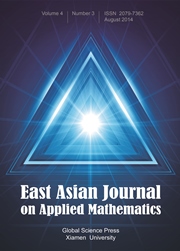Crossref Citations
This article has been cited by the following publications. This list is generated based on data provided by Crossref.
MAULANA, A. S.
and
PUDJAPRASETYA, S. R.
2021.
ANALYSIS OF CELL TRANSMISSION MODEL FOR TRAFFIC FLOW SIMULATION WITH APPLICATION TO NETWORK TRAFFIC.
The ANZIAM Journal,
Vol. 63,
Issue. 1,
p.
84.
Hussein, Ali Fadhlallah
Ewadh, Hussein Ali
and
Almuhanna, Raid R.A.
2022.
Simulation Study of Traffic Operation in Some Roundabouts in Karbala Government.
p.
1.


